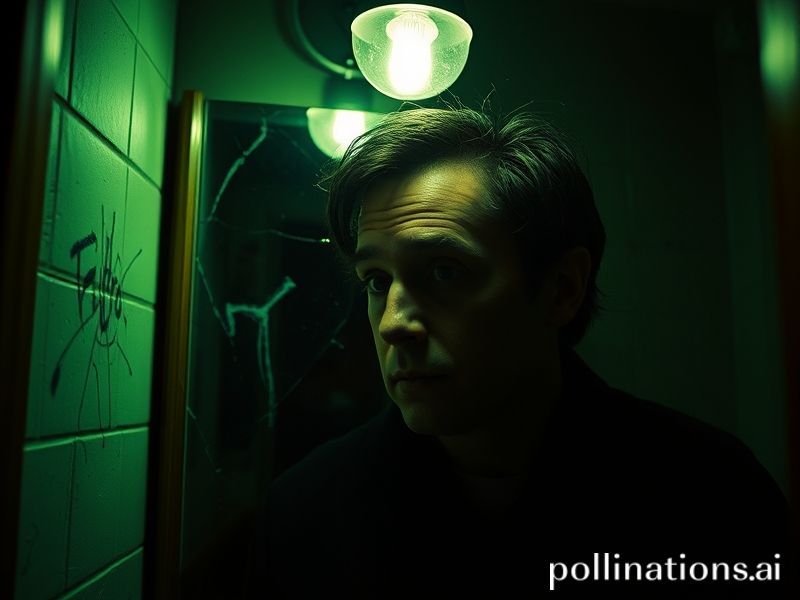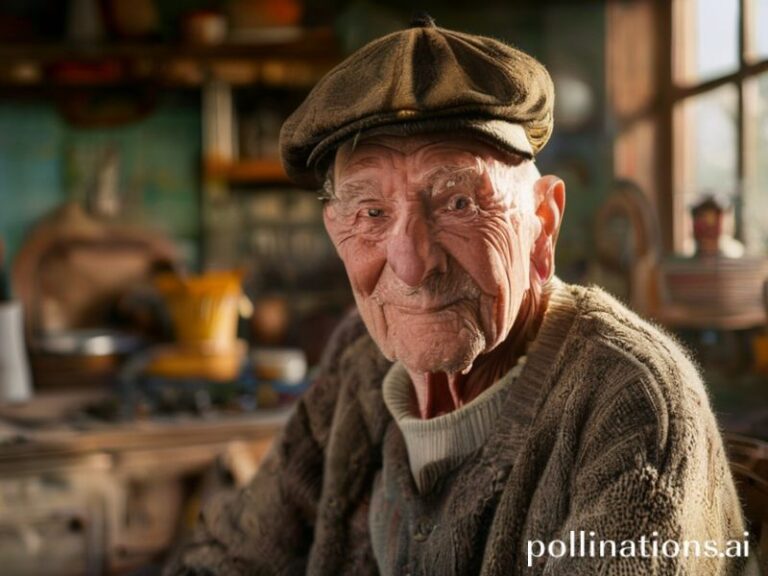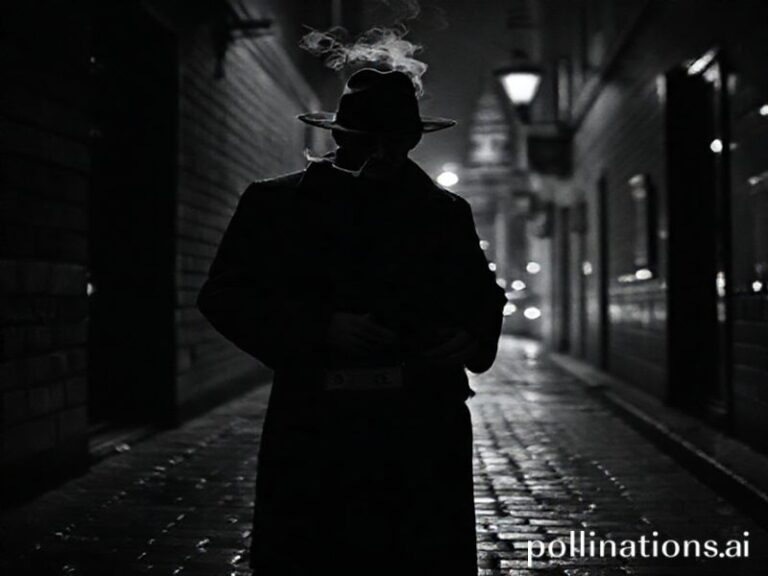Reece Shearsmith: Britain’s Accidental Minister of Global Dread
Reece Shearsmith and the Global Spread of Beautifully Unhinged Britishness
by our London desk, via a Wi-Fi signal that still smells faintly of Brexit
There’s a moment in every nation’s cultural timeline when the rest of the planet looks over, blinks twice, and mutters, “Wait, that’s what you people do for fun?” For the United Kingdom, that moment has arrived—again—courtesy of Reece Shearsmith, the mild-mannered Lancastrian who has weaponised awkwardness and exported it to 190-odd territories like artisanal anxiety. While governments scramble over trade routes and semiconductor sanctions, Shearsmith has quietly built a black-market supply chain of exquisite dread, smuggled via streaming services, sold-out festival halls, and the occasional bootleg DVD in a Reykjavik car park.
From Santiago to Seoul, viewers now binge Inside No. 9 with the same jittery reverence they once reserved for telenovelas or K-dramas about chaebol heirs with tragic perms. The show’s anthology format—half-hour bursts of narrative Russian roulette—travels better than duty-free whisky. No subtitles can fully translate “mildly haunted post-war British suburbia,” yet somehow it lands. Perhaps because every country has its own mildewed basement of national shame; Shearsmith just provides the tour guide with impeccable comic timing and the expression of a man who has seen the void, found it slightly gauche, and apologised for intruding.
International programmers adore him. At the 2023 Series Mania festival in Lille, a French commissioning editor confessed she wanted “le vibe Shearsmith” for a multilingual co-production. Translation: six episodes set inside a malfunctioning Eurostar toilet, co-written by someone who once read a BuzzFeed listicle about Kafka. The project is currently stalled because no one can decide whose national neuroses get the funnier close-up. Meanwhile, Brazil’s GloboPlay has green-lit a spiritual remake tentatively titled Número 9: Carnaval Macabro, promising samba-scored human sacrifice in a São Paulo elevator. Cultural diffusion, like mould, finds a way.
Shearsmith’s earlier work—The League of Gentlemen, Psychoville, that mischievous 2018 Macbeth where he played all three witches plus Banquo’s ghost—now circulates among global film schools as a cautionary masterclass: how to weaponise parochial kitsch until it detonates into universal unease. In Jakarta, a postgraduate collective recently recreated Papa Lazarou’s circus with wayang kulit shadow puppets, inadvertently summoning a minor diplomatic incident when the British ambassador mistook it for colonial satire. (It was, but only by accident.)
Critics theorise that Shearsmith’s export appeal lies in his refusal to export anything at all. His characters remain stubbornly regional—chip-shop gothic, seaside melancholy, the sort of people who’d weaponise a teacake if sufficiently provoked—yet the emotional payload is borderless: loneliness dressed as cosplay, cruelty masquerading as etiquette. In an age when every nation is busy polishing its trauma into influencer-friendly content, Shearsmith’s grubby authenticity feels almost revolutionary, like discovering a sanctioned country has been running an unsanctioned emotion-smuggling ring.
Naturally, there are casualties. Hollywood keeps circling, offering “a gritty prestige reboot” of The League set in a gentrified Detroit food hall. Shearsmith reportedly responded by sending a single-page fax reading, “Have you considered simply making it good?” The fax was signed “Yours in existential terror, R.” Industry rumour claims it’s now framed above the desk of a Netflix executive who weeps into his oat-milk latte every development season.
The broader significance? While nations erect firewalls and tariff walls, dread remains tariff-free. Shearsmith has proved you can weaponise provincial oddity into soft power without a single aircraft carrier. The Foreign Office, ever alert to a branding opportunity, briefly floated knighting him “Minister for Uncanny Exports.” The idea died when someone realised knighting Reece Shearsmith would only encourage him to write a short play where the sword gets stuck halfway and the Queen’s ghost demands a blood tithe.
And so, at 2 a.m. in a Tokyo share-house, a graduate student finishes the latest Inside No. 9, feels the familiar stomach-drop of cosmic insignificance, and tweets: “This man understands the universal condition: we are all alone, in a caravan, and the kettle is watching.” Within minutes, the observation is retweeted in Lagos, Lima, and Leeds. Globalisation’s newest lingua franca isn’t English; it’s beautifully curated British dread, served with a nervous titter.
Conclusion: In a fractured world, Reece Shearsmith has become the unlikely ambassador of our shared discomfort. He reminds us that no matter the passport stamp, we all live in Inside No. 9—population: us, the kettle, and whatever’s scratching at the door. The scratching, mercifully, is subtitled.







